“I found it empowering to be told I couldn’t talk about something,” said Gabby Edlin, founder of Bloody Good Period on the topic of period taboos at the launch of the winter Index on Censorship magazine


“I found it empowering to be told I couldn’t talk about something,” said Gabby Edlin, founder of Bloody Good Period on the topic of period taboos at the launch of the winter Index on Censorship magazine

八九学运领袖王丹同著名作家欣然探讨天安门学运结果及其遗产

Sex and pregnancy continue to be taboo subjects around the world as a special report in Index on Censorship magazine shows
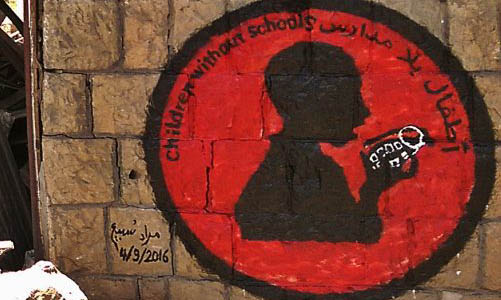
Art has been used as a form of protest during times of crisis throughout history. It is a popular and, at times, effective platform to express opinions about societal problems
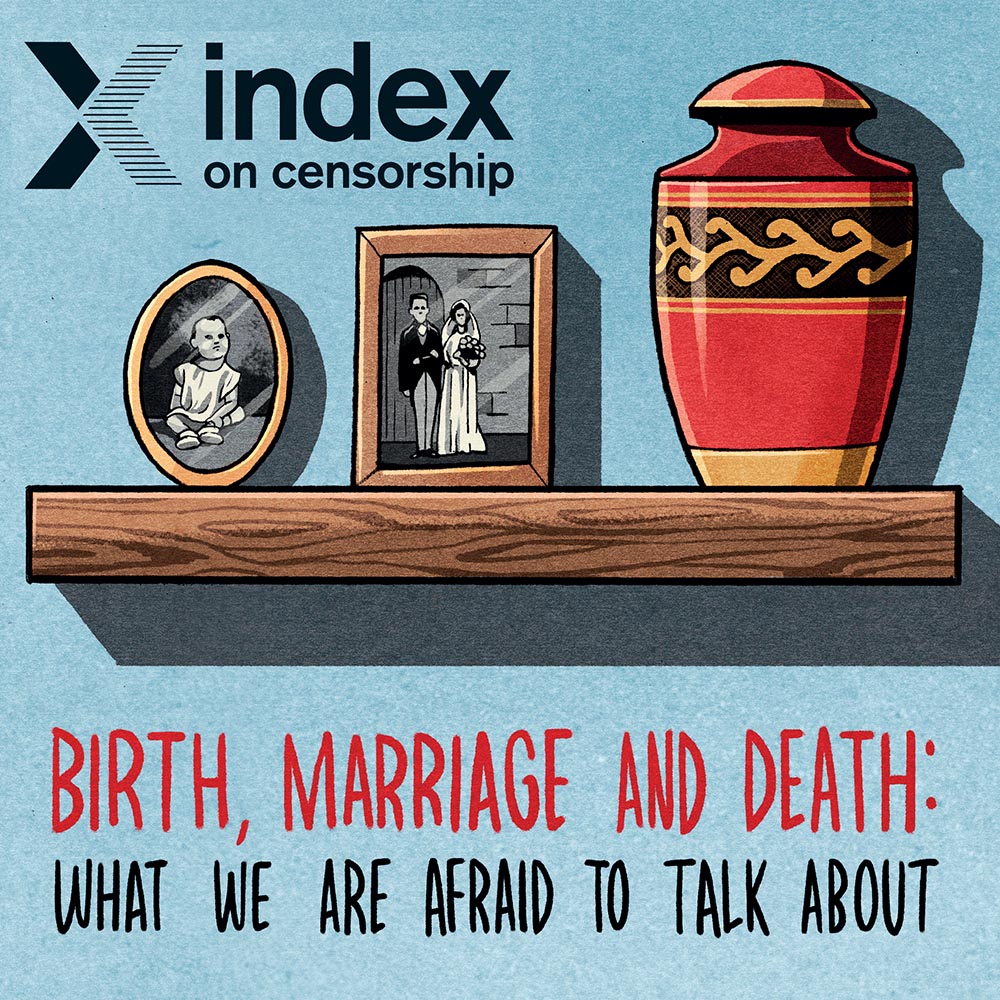
Birth, marriage and death–these are key staging posts. And that’s one reason why this issue looks at how taboos around these subjects have a critical impact on our world.
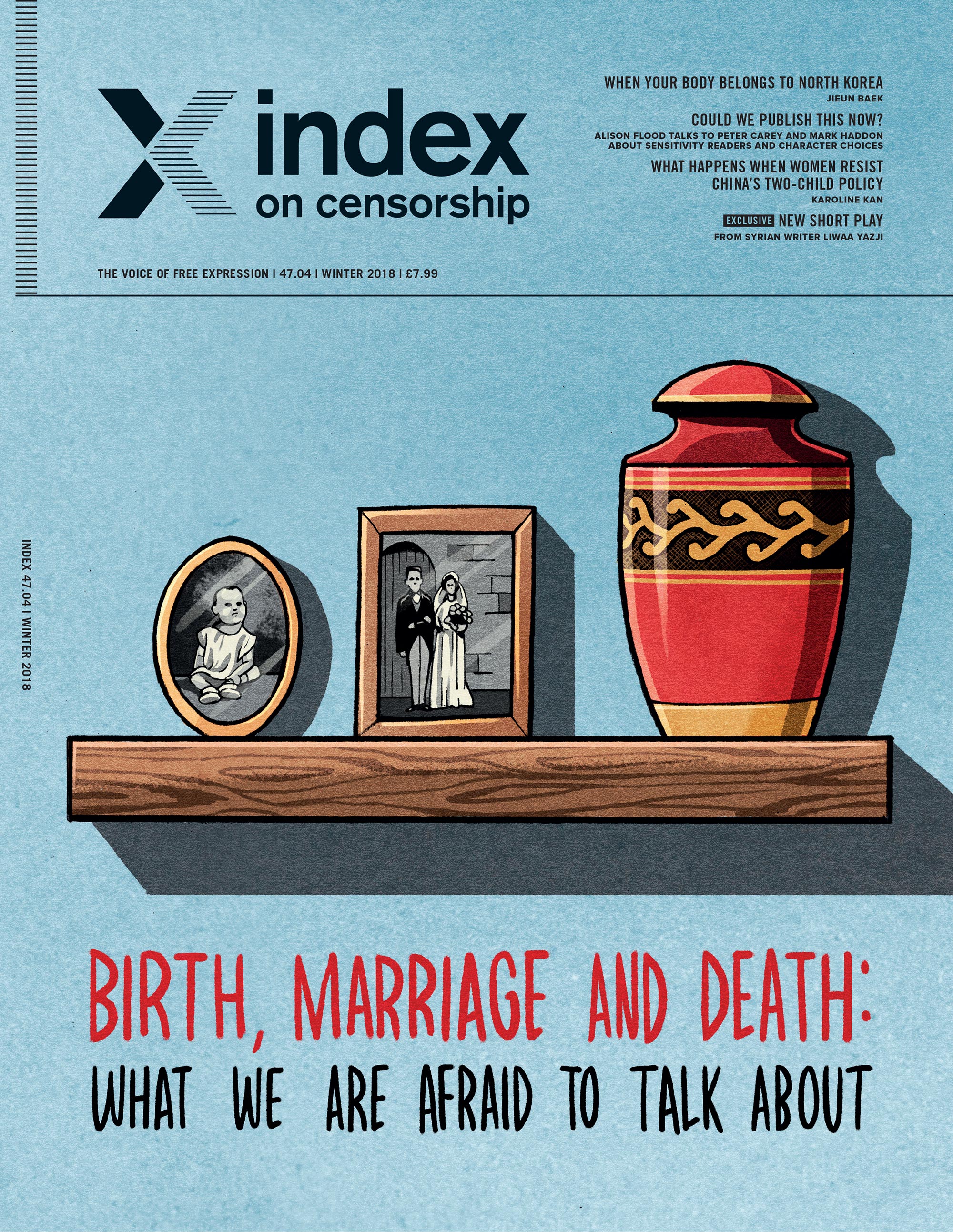
The winter 2018 Index on Censorship magazine looks at why different societies stop people discussing the most significant events in life. In China, as Karoline Kan reports, women were forced for many years to have just one child and now they are being pushed to have two, but it is not something to talk about. In South Korea Steven Borowiec finds men have taken to social media to condemn a new film adaptation of a novel about motherhood. Irene Caselli describes the consequences in Latin America of preventing discussion about contraception and sexually transmitted infections. Joan McFadden digs into attitudes to gay marriage in the Hebrides, where she grew up, and interviews the Presbyterian minister who demonstrated against Lewis Pride. We have an original play from Syrian dramatist Liwaa Yazji about fear and violent death. While flash fiction writer Neema Komba imagines a Tanzanian bride challenging the marriage committee over her wedding cake. Finally Nobel-prize-winning author Svetlana Alexievich tells us that she is sanguine about the mortal dangers of chronicling and criticising post-Soviet Russia.

The winter 2018 issue of Index on Censorship magazine looks at why different societies stop people discussing the most significant events in life: birth, marriage and death
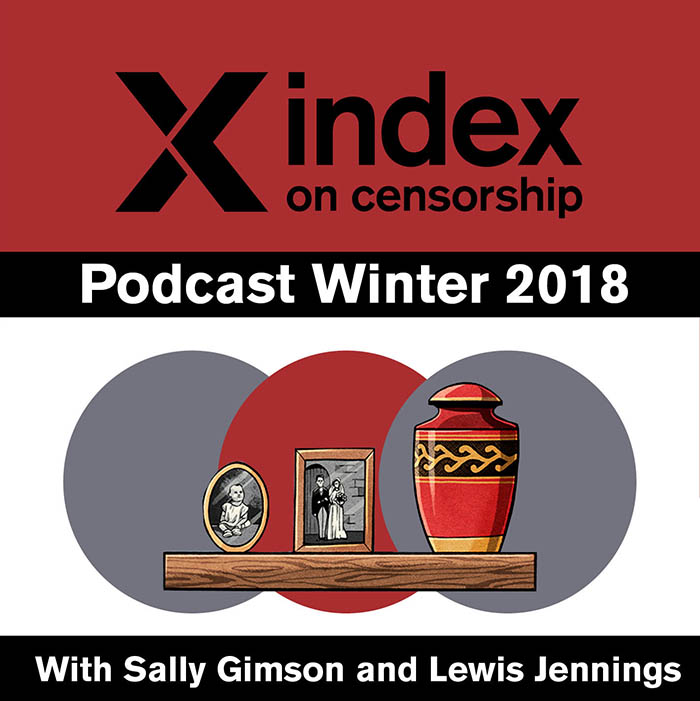
With author Jieun Baek, Sharon Thompson, senior lecturer at Cardiff Law School, Times columnist Edward Lucas and journalist Irene Caselli

Join authors Xinran and Emile Pine and Gabby Edlin, CEO of Bloody Good Period, to tackle the tricky topics of the taboo and (self-)censorship when it comes to some of our most human experiences at the launch of Index on Censorship’s latest magazine.
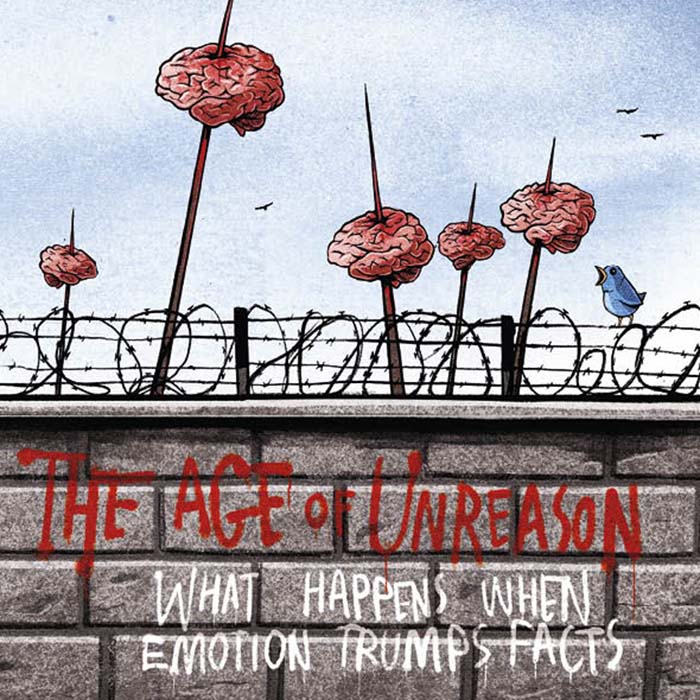
Anonymous, threatening letters are being sent to UK homes to try to stop activities that the Chinese government disapproves of. Jemimah Steinfeld investigates
A quarterly journal set up in 1972, Index on Censorship magazine has published oppressed writers and refused to be silenced across hundreds of issues.
The brainchild of the poet Stephen Spender, and translator Michael Scammell, the magazine’s very first issue included a never-before-published poem, written while serving a sentence in a labour camp, by the Soviet dissident Aleksandr Solzhenitsyn, who went on to win a Nobel prize later that year.
The magazine continued to be a thorn in the side of Soviet censors, but its scope was far wider. From the beginning, Index declared its mission to stand up for free expression as a fundamental human right for people everywhere – it was particularly vocal in its coverage of the oppressive military regimes of southern Europe and Latin America but was also clear that freedom of expression was not only a problem in faraway dictatorships. The winter 1979 issue, for example, reported on a controversy in the United States in which the Public Broadcasting Service had heavily edited a documentary about racism in Britain and then gone to court attempting to prevent screenings of the original version. Learn more.